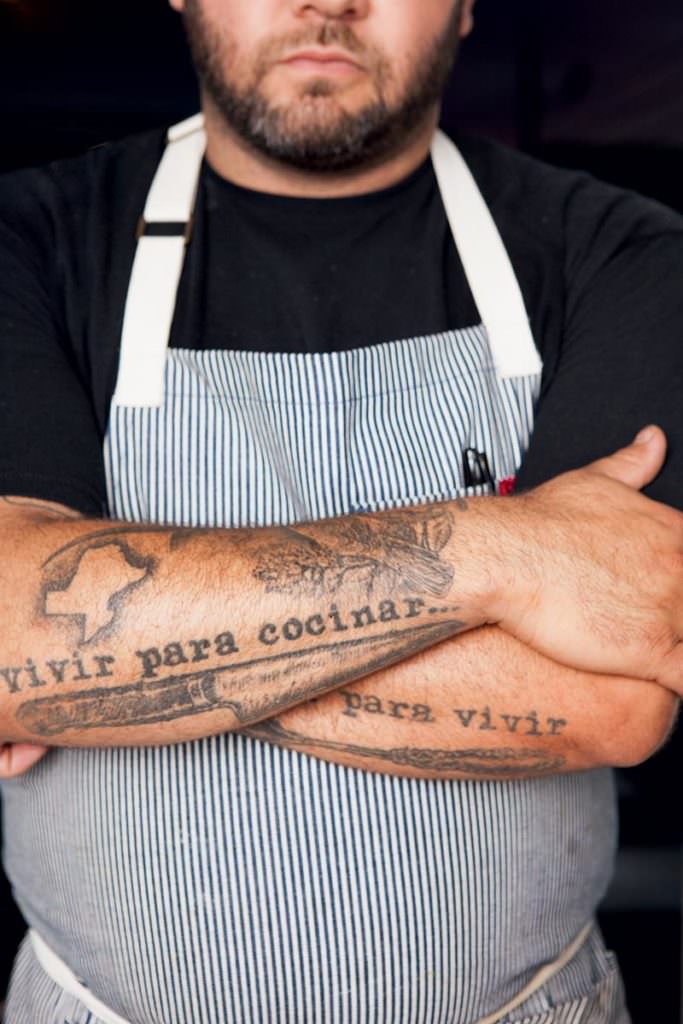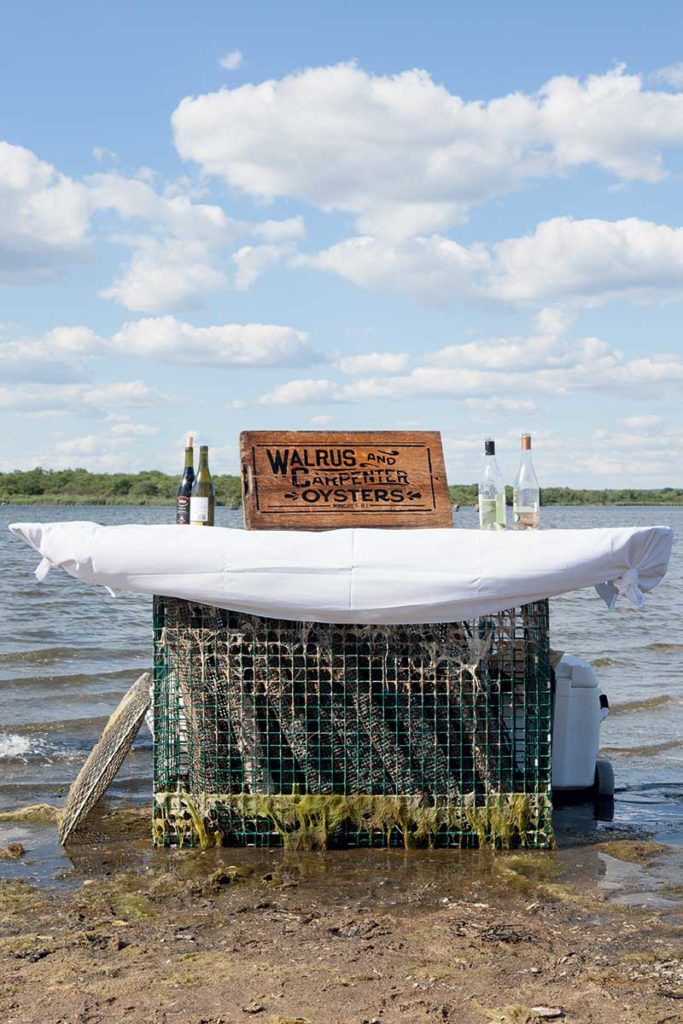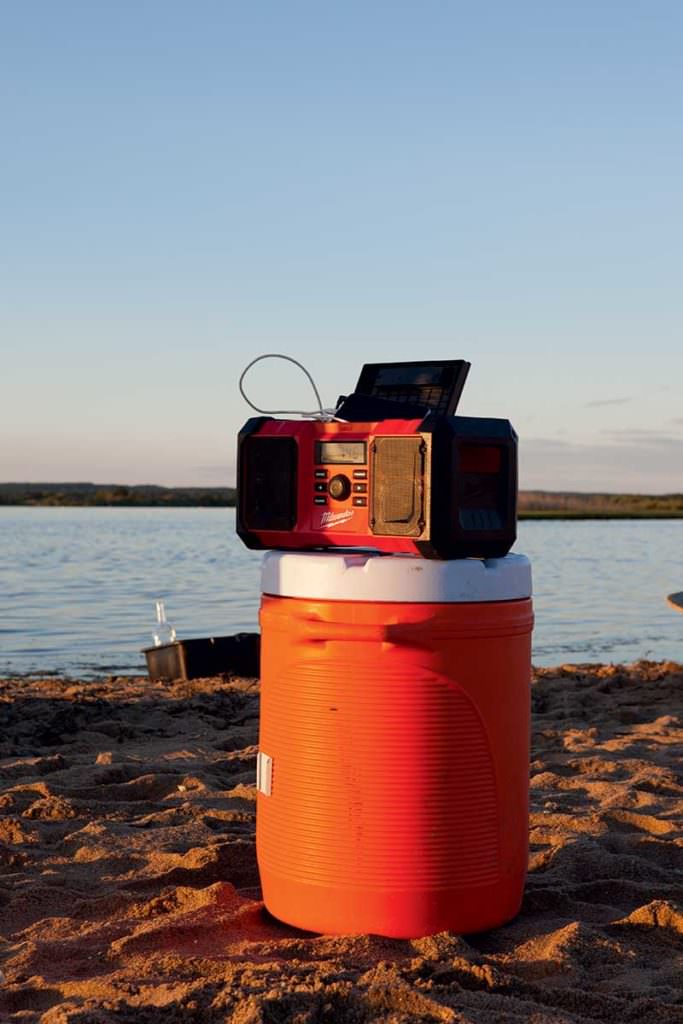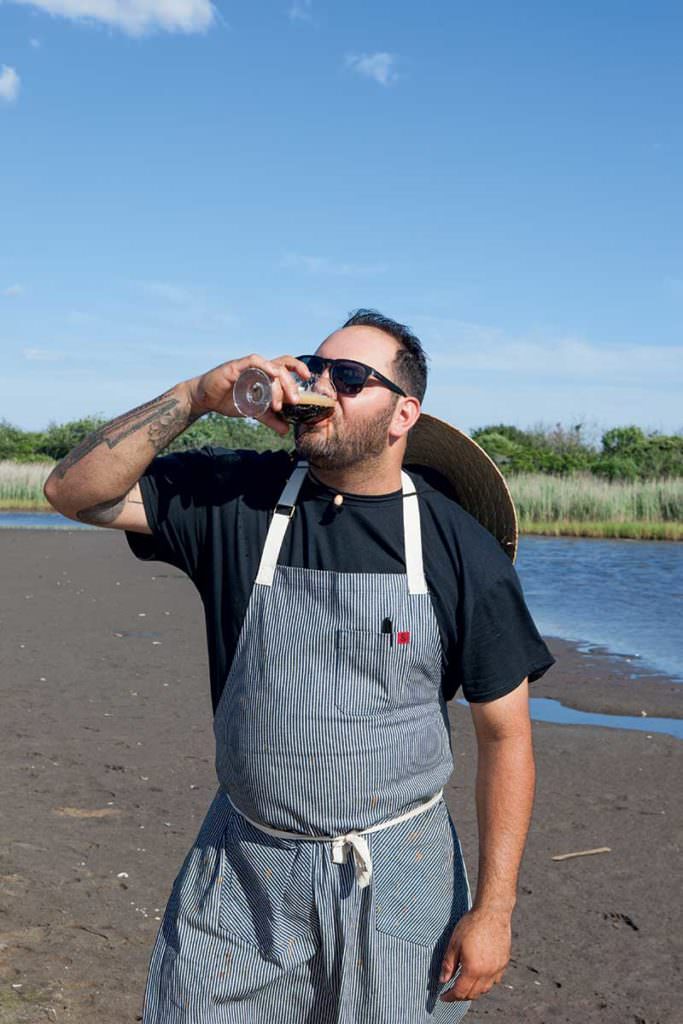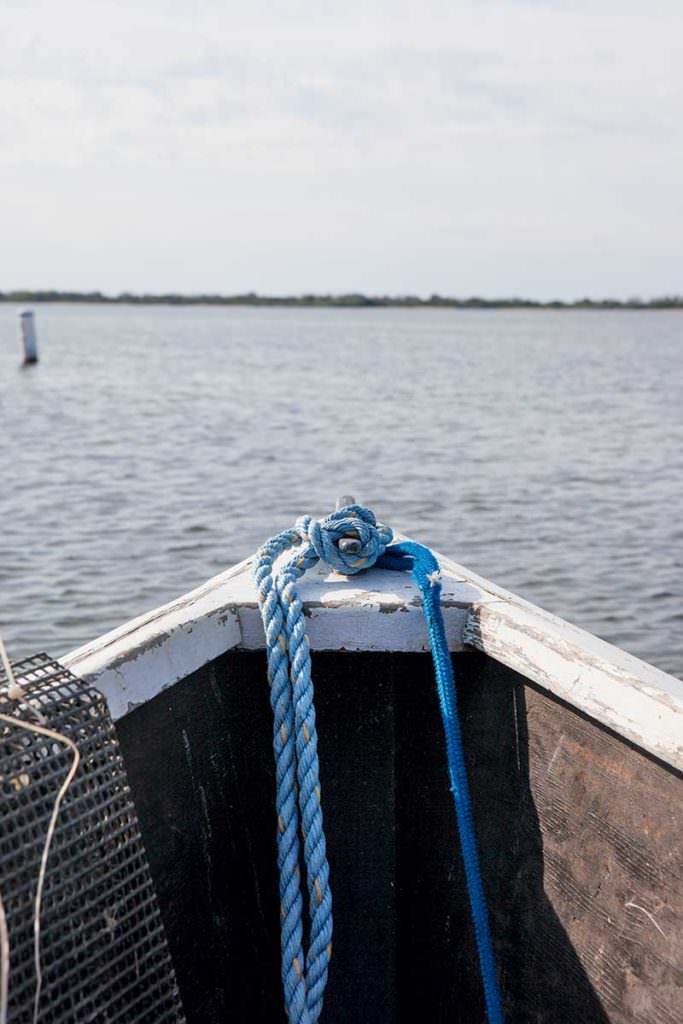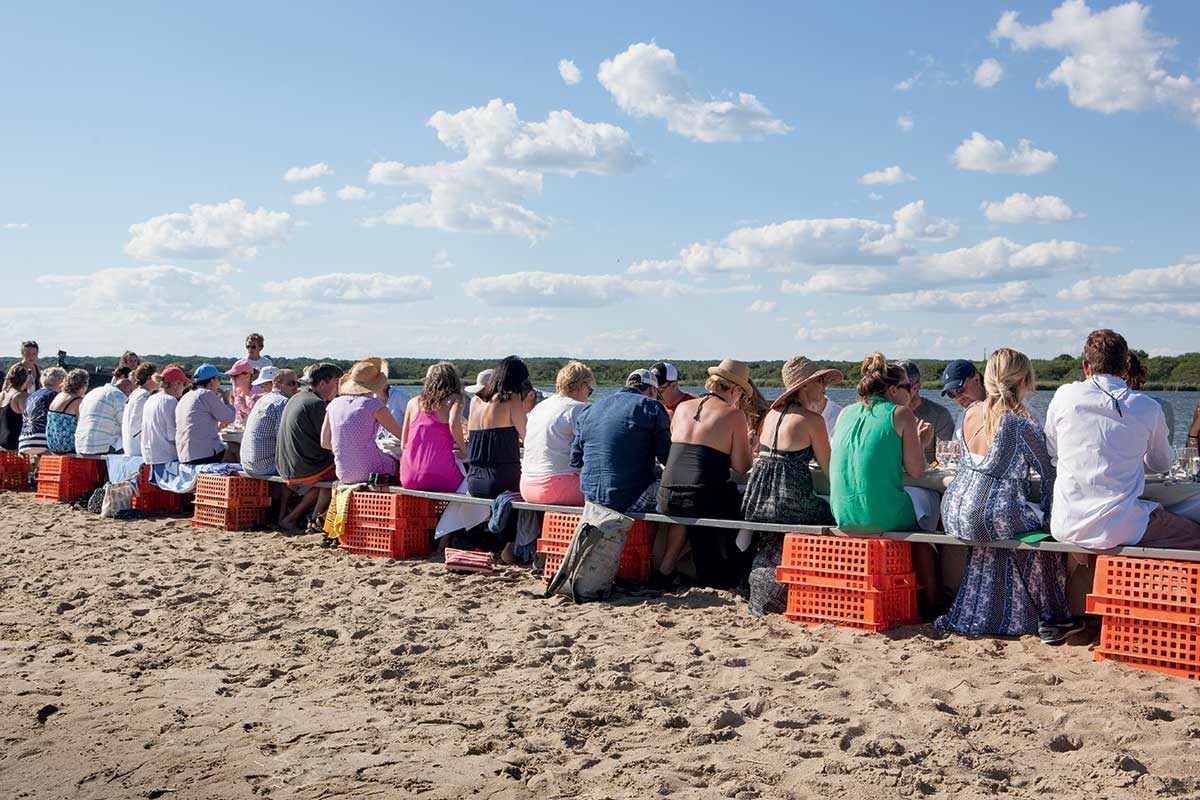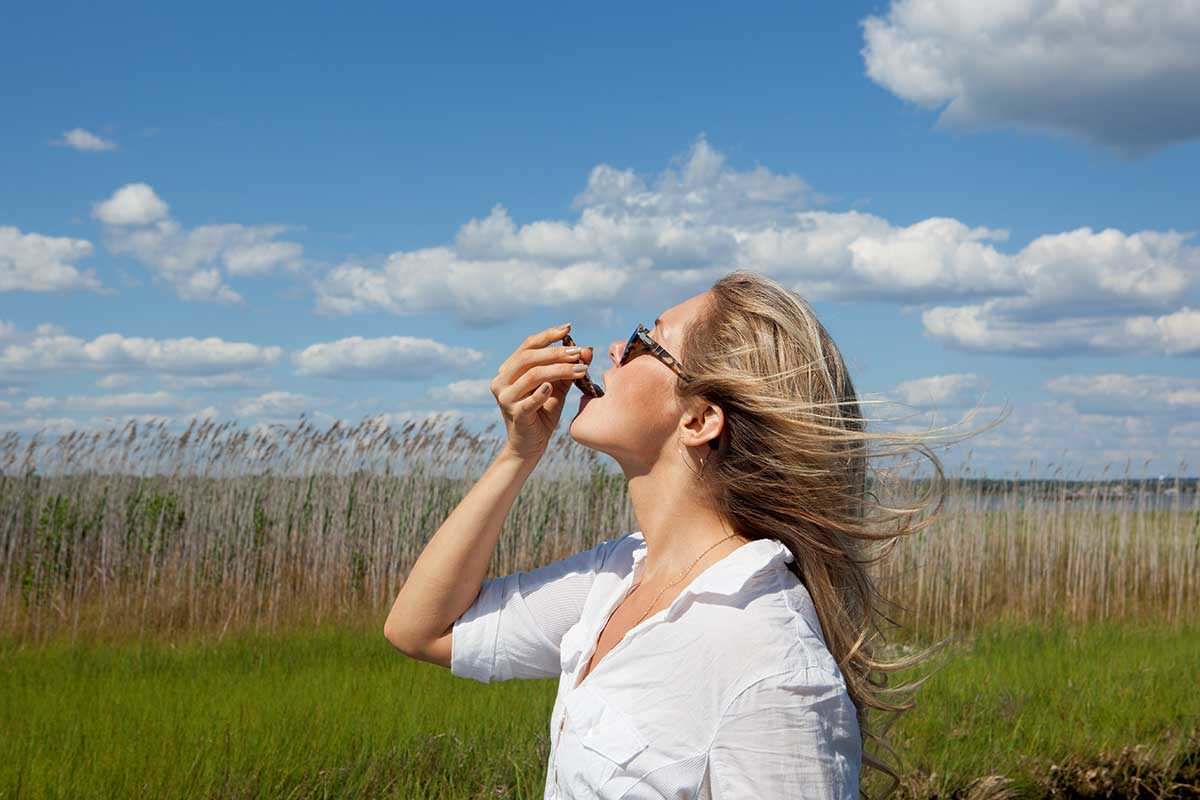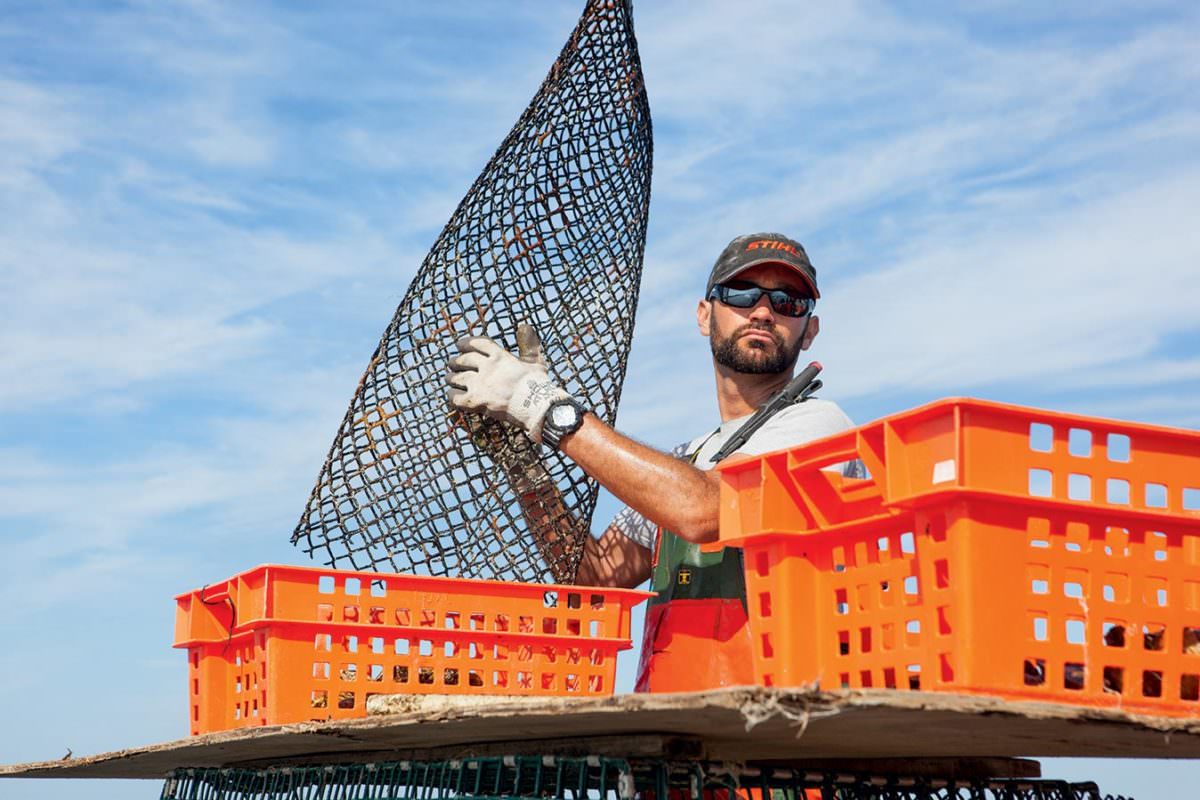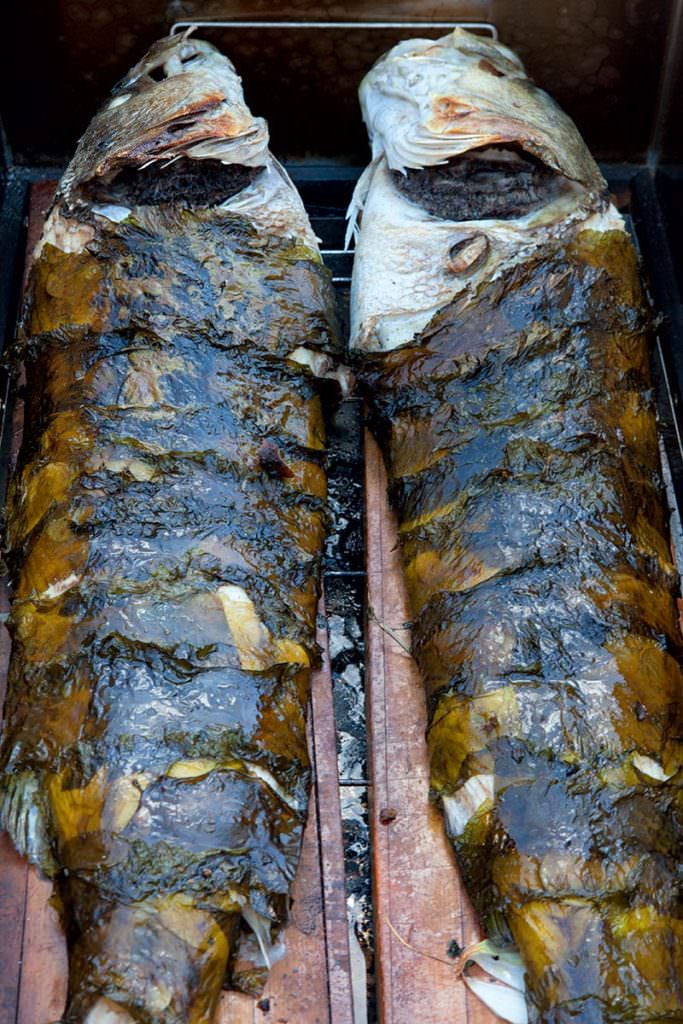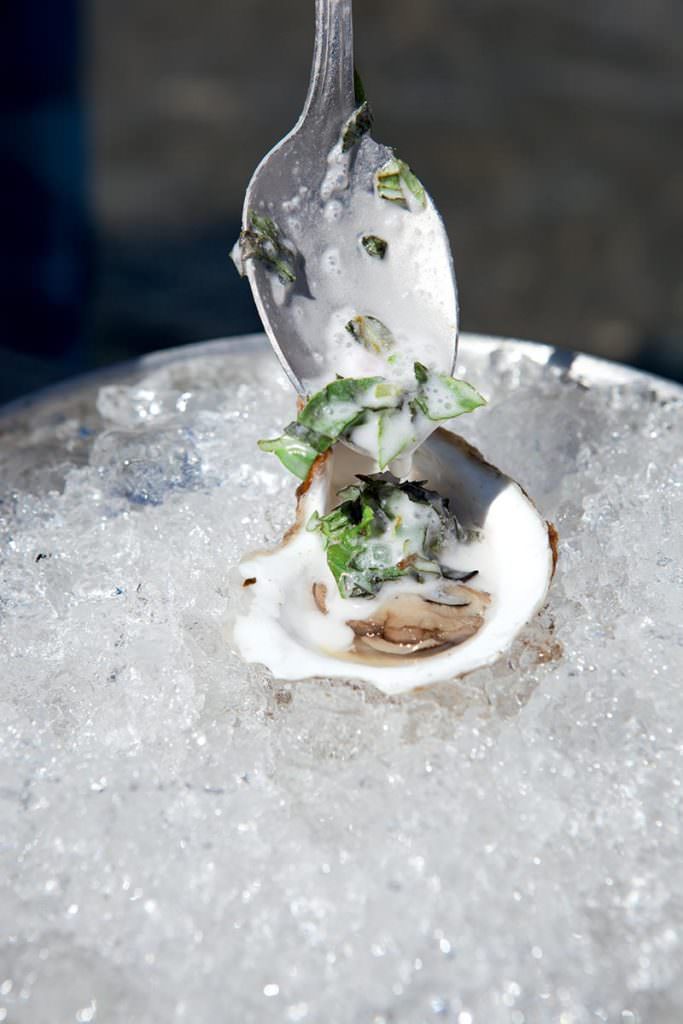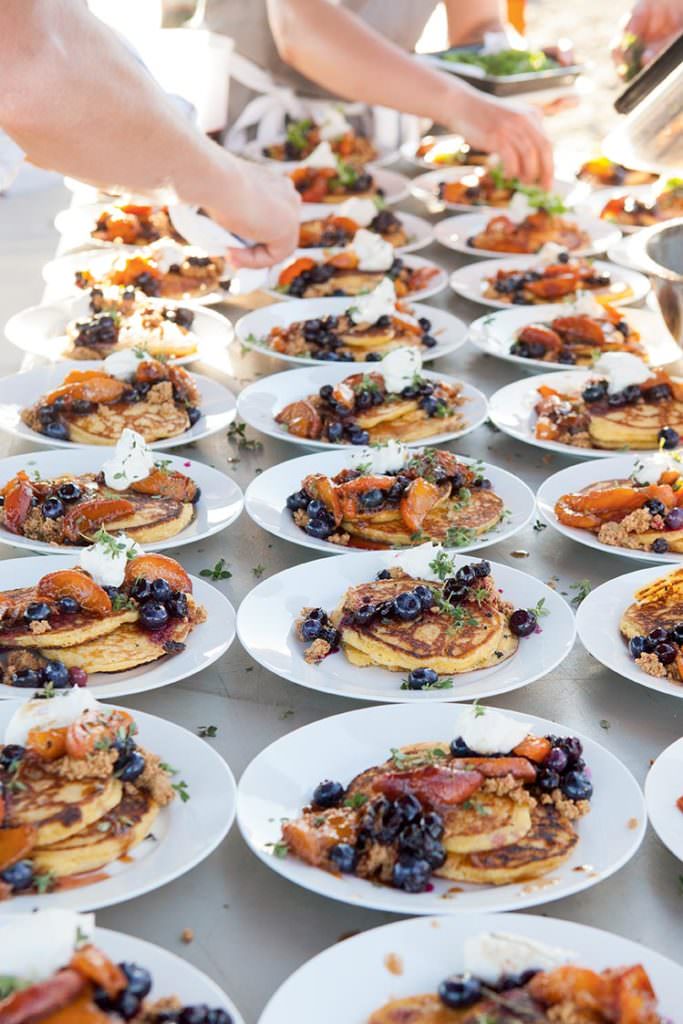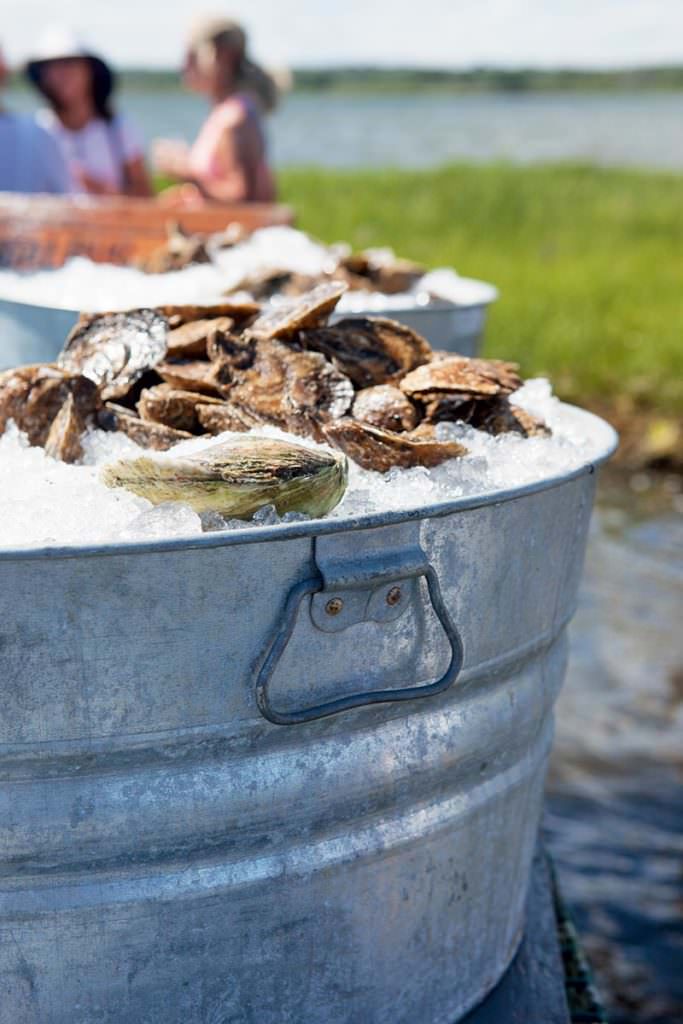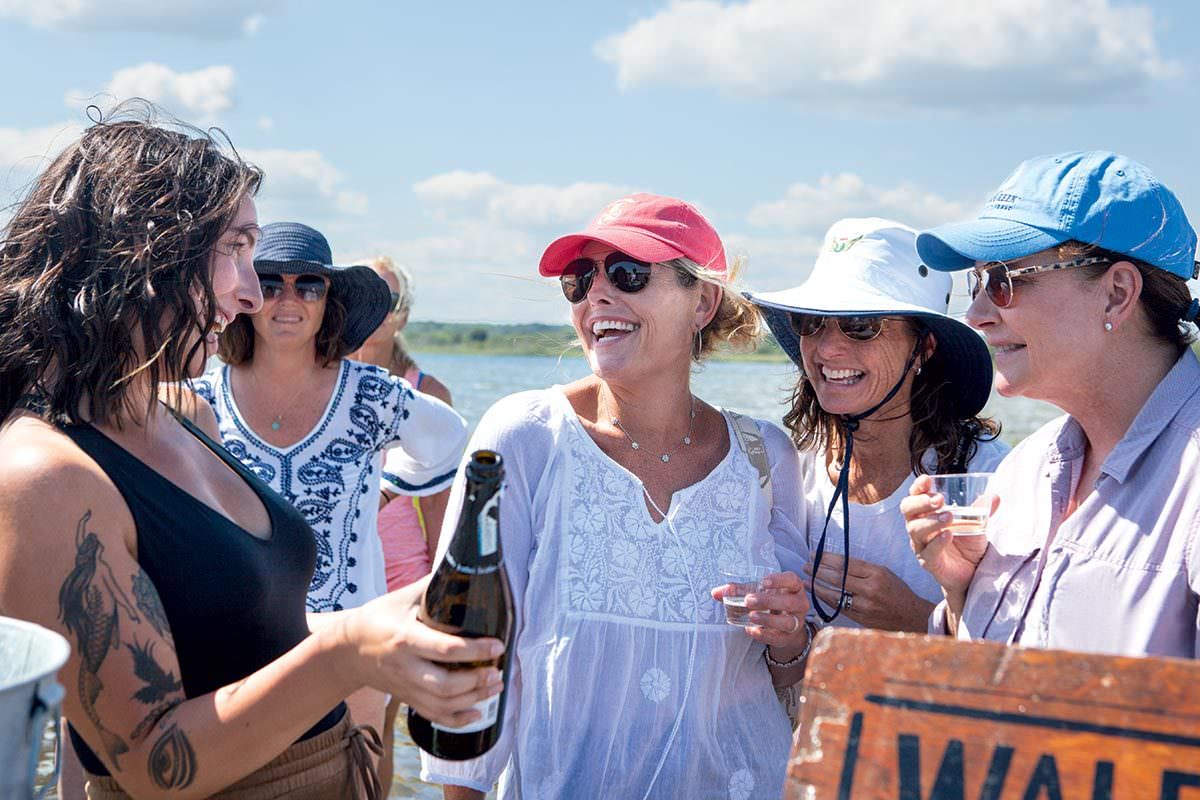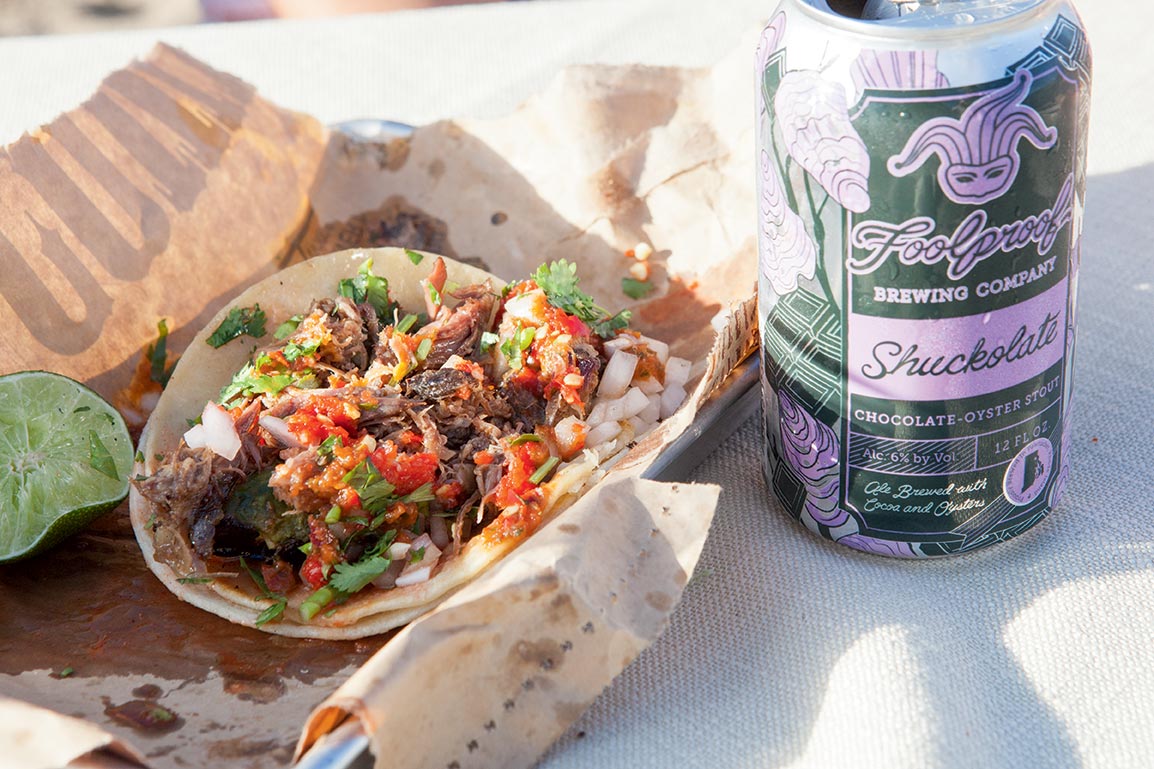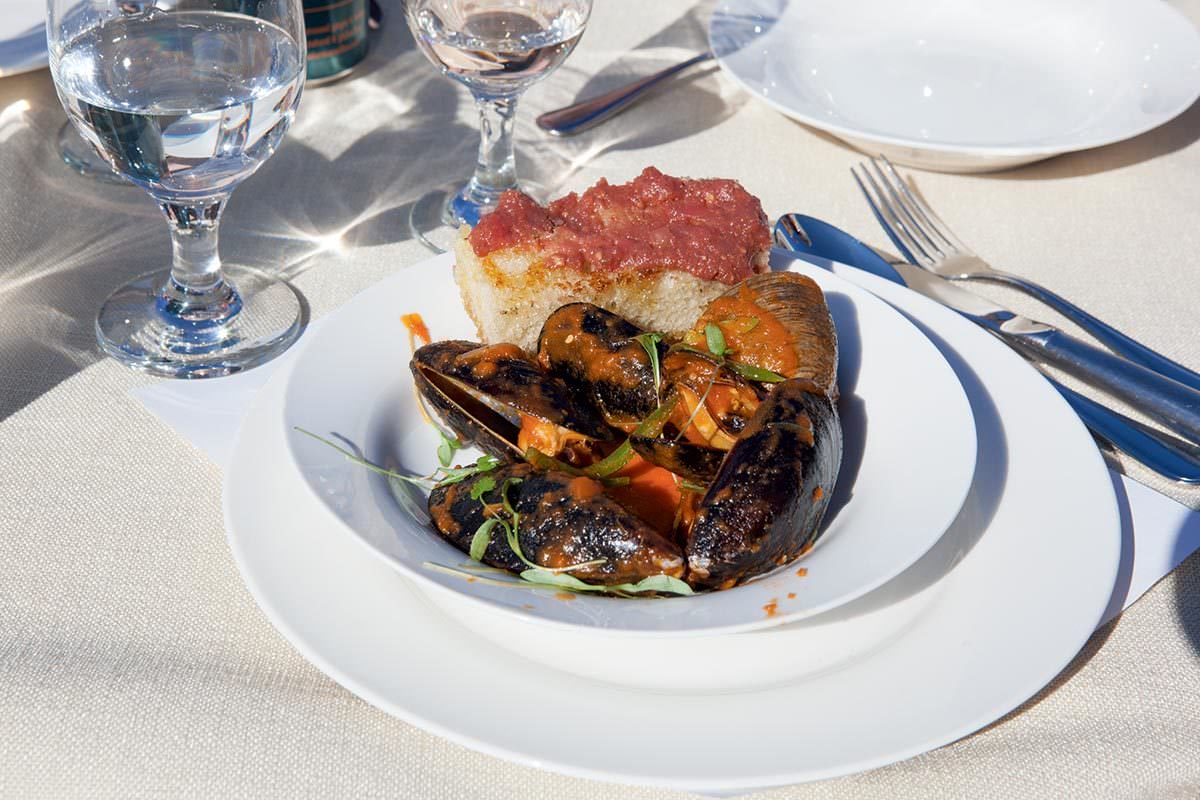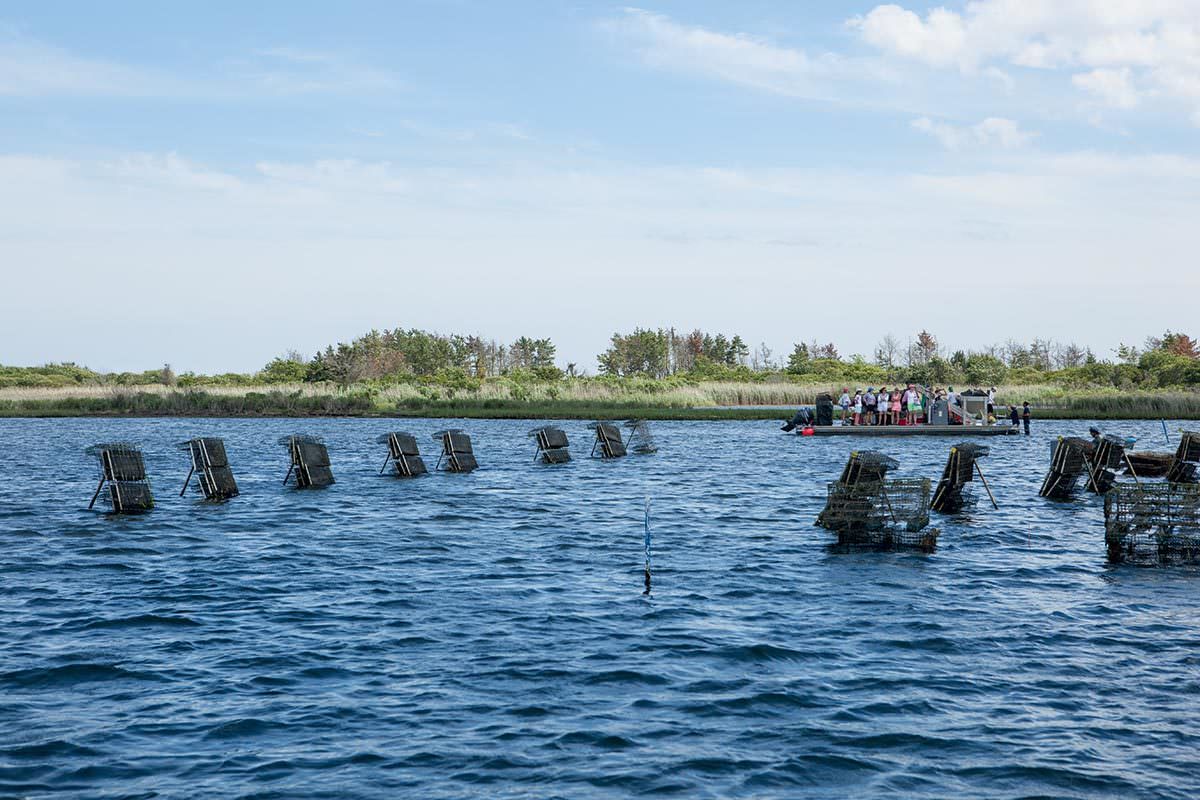This isn't your typical farm-to-table dinner. Then again, Walrus and Carpenter isn't your typical oyster farm.
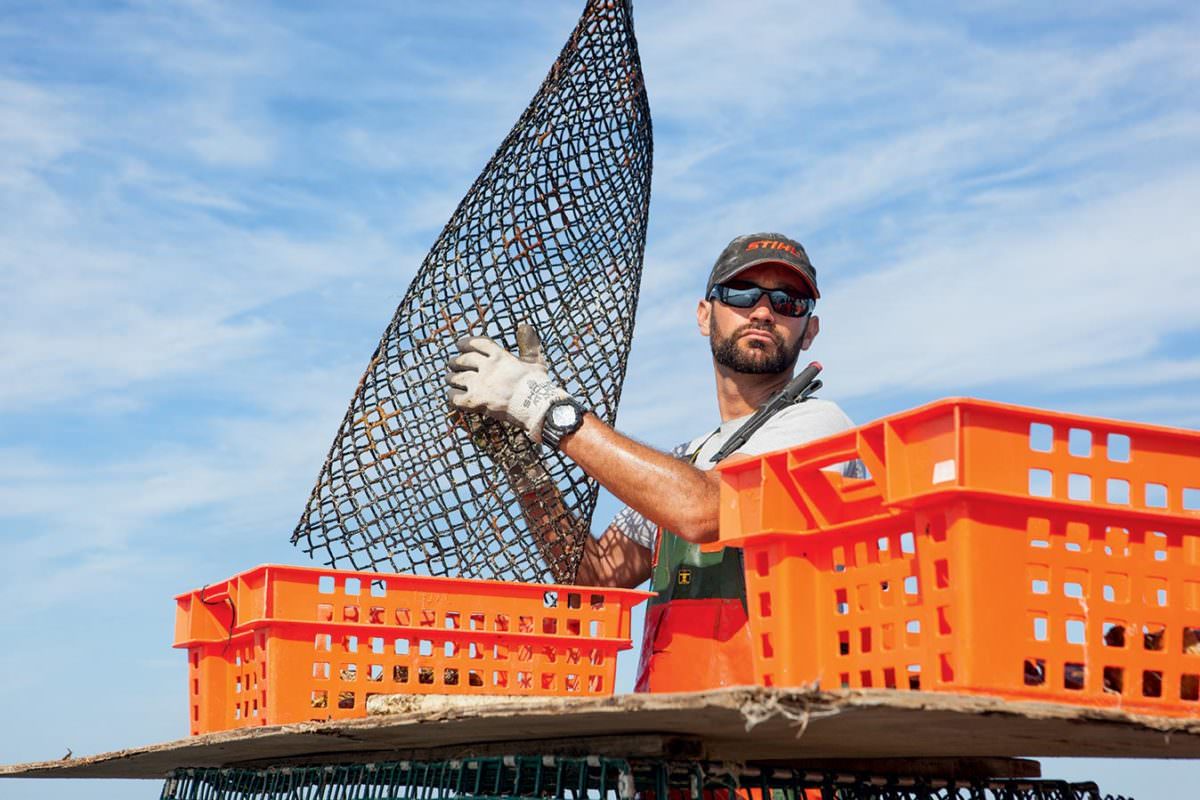
JULES OPTON-HIMMEL grew up on an island. Of a sort. The oysterman spent his first 18 years in a Manhattan loft perched above the intersection of Broadway and Bleecker. “By the time I graduated high school, I knew I didn’t want to live in New York City,” says Opton-Himmel of his decision to relocate to Connecticut, where he studied environmental science in college (Wesleyan) and grad school (Yale). “I wanted a career that would make a difference, preferably with an office outdoors,” the 36-year-old adds.
Both wishes were granted in 2006 by The Nature Conservancy, which hired him to assist on shell fish-restoration projects off the coasts of Connecticut and Rhode Island. “Habitat destruction and over fishing have wiped out more than 85 percent of the global wild oyster population,” he says. “And oysters balance marine ecosystems by filtering out pollutants.” Recognizing that even commercially cultivated bivalves would improve water quality during the crop’s two- to three-year cycle, Opton-Himmel leased a thousand submerged square feet of Ninigret Pond, a saltwater lagoon in Charlestown, Rhode Island. For a couple years, the budding eco-friendly entrepreneur held down his day job, often rising at 4 a.m. to tend the modest pond plot from an ancient aluminum boat with a nine-horsepower outboard motor. “It was a shit show,” he admits. “You can’t farm oysters part-time. I killed nearly all the seeds I’d bought. It was an expensive wake-up call.”
In summer, the job’s the stuff of cubicle-bound desk-jockeys’ dreams; in winter, not so much. “Whether it’s snowin’ or blowin’, we’re still goin’.”
A single two-liter bottle’s worth of oyster “starts” (roughly 2.5 million 1-millimeter seeds) costs around $20,000. And coddling them into market-ready product ain’t easy. After two to four months in protected upwellers (the aquatic equivalent of greenhouses), the thumbnail-size babies graduate to crated bags in open water. Every few weeks, the bags must be inspected for suffocating algae and their contents thinned out to prevent overcrowding.
Today, Opton-Himmel and his eight-man crew of twenty- and thirtysomethings manage approximately 10,000 bags spread over eight acres in Ninigret Pond and Jamestown’s Dutch Harbor. The guys log 10-hour days, four days a week. In summer, the job’s the stuff of cubicle-bound desk-jockeys’ dreams; in winter, not so much. “Whether it’s snowin’ or blowin’, we’re still goin’,” quips Opton-Himmel, who named his company Walrus and Carpenter, in homage to the Lewis Carroll poem that includes stanzas like: “The Walrus and the Carpenter/Walked on a mile or so/And then they rested on a rock/Conveniently low:/And all the little Oysters stood/And waited in a row.”
Of course, this operation’s goals don’t involve baby oysters, according to its founder: “Runts go back in the water. Only the buttery, briny fatties reach clients, within 24 hours of harvest.” Walrus and Carpenter sells directly to consumers in Providence and New York City through a subscription service and supplies nearly 50 Rhode Island restaurants. “Some purveyors can’t be bothered with their customers, but we listen carefully to ours. We know what they want and react quickly to their demands.”
That relationship-building strategy paid off four years ago, when Opton-Himmel first asked area chefs for help with a series of ocean-to-table dinners, intended to spotlight the state’s sustainable aqua- and agriculture producers. Jake Rojas, chef-owner of Tallulah’s Taqueria and a small food-truck fleet in Providence, cooked this particular feast last July (all 36 tickets sold out in four minutes, despite a hefty $225 price). For the menu, Rojas drew on his Mexican heritage and the availability of area ingredients. Blackbird Farm provided pig cheeks for carnitas tacos. American Mussel Harvesters’ clams and mussels were steamed in a stew of tomatoes from Schartner Farms. Peaches and blueberries picked at Sweet Berry Farm topped dessert: johnnycakes made with locally milled cornmeal.
“These events give us a platform to talk about farming and the environment,” Opton-Himmel says. “Guests standing knee-deep in Ninigret Pond have to listen to me explain that Walrus and Carpenter’s methods aren’t extractive, that we plant every single thing we harvest. I’m compelled to educate people about climate change. Merely growing an expensive appetizer isn’t enough.”
Chef Rojas has shared some of his recipes from the July dinner with us. Check them out:
- Littleneck Clams and Mussels in Spicy Tomato Broth
- Pan con Tomate
- Pork Carnitas Tacos with Salsa Fresca
- Kelp-Wrapped Sea Bass with Sunflower Chimichurri and Green Harissa Ranch
- Crispy Bluefish Collars with Mole Verde and Nuoc Cham Vinaigrette
- Johnnycakes with Macerated Blueberries, Charred Peaches, and Brown Sugar Crumble
- The Secret’s in the Sauce! Some of Chef Roja’s Favorite Recipes
To learn more about Walrus and Carpenter’s dinners, visit walrusandcarpenter oysters.com. The company also hosts summer sunset cruises for $75 per person.
- Jake Rojas, chef-owner of Tallulah’s Taqueria in Providence, prepared the dinner for a Walrus and Carpenter event last summer. Rojas’ tattoos translate to “Live to cook, cook to live.
- An oyster rack serves as a makeshift bar at the party.
- Grilled avocados accompany the carnitas tacos.
- An old-school boombox provides the soundtrack for the supper.
- Rojas knocks back a glass of the chocolate-oyster stout Shuckolate, a collaboration between Walrus and Carpenter and Rhode Island’s Foolproof Brewing.
- Opton-Himmel built this wooden ski by hand in 2009.
- Thirty-six diners tuck into the five-course feast while seated on benches improvised from oyster crates and wooden planks.
- A guest samples the house specialty at the raw bar.
- Walrus and Carpenter’s farm manager, Steve Katkowski, jumps into Ninigret Pond, as fellow farmer Isaac Dressel mans one of the company’s floating workstations.
- Jules Opton-Himmel, who founded Walrus and Carpenter eight years ago, empties an oyster bag.
- Rojas wrapped whole sea bass in kelp before roasting it.
- A coconut milk mignonette complements Eastern oysters (Crassostrea Virginica) from Walrus and Carpenter.
- Greek yogurt and fresh lemon thyme garnish johnnycakes topped with peaches and blueberries.
- It takes two to three years for oysters to reach maturity.
- Alex McIlwee, of Bottles Fine Wine in Providence, offers chilled Batiso Prosecco to attendees.
- Chef Rojas grilled pig heads on the beach, yielding tender cheek meat for tacos.
- American Mussel Harvesters in nearby North Kingstown, RI, supplied the clams and mussels for Rojas’ spicy chorizo and tomato stew.
- Guests tour the Walrus and Carpenter oyster farm via pontoon boat.
